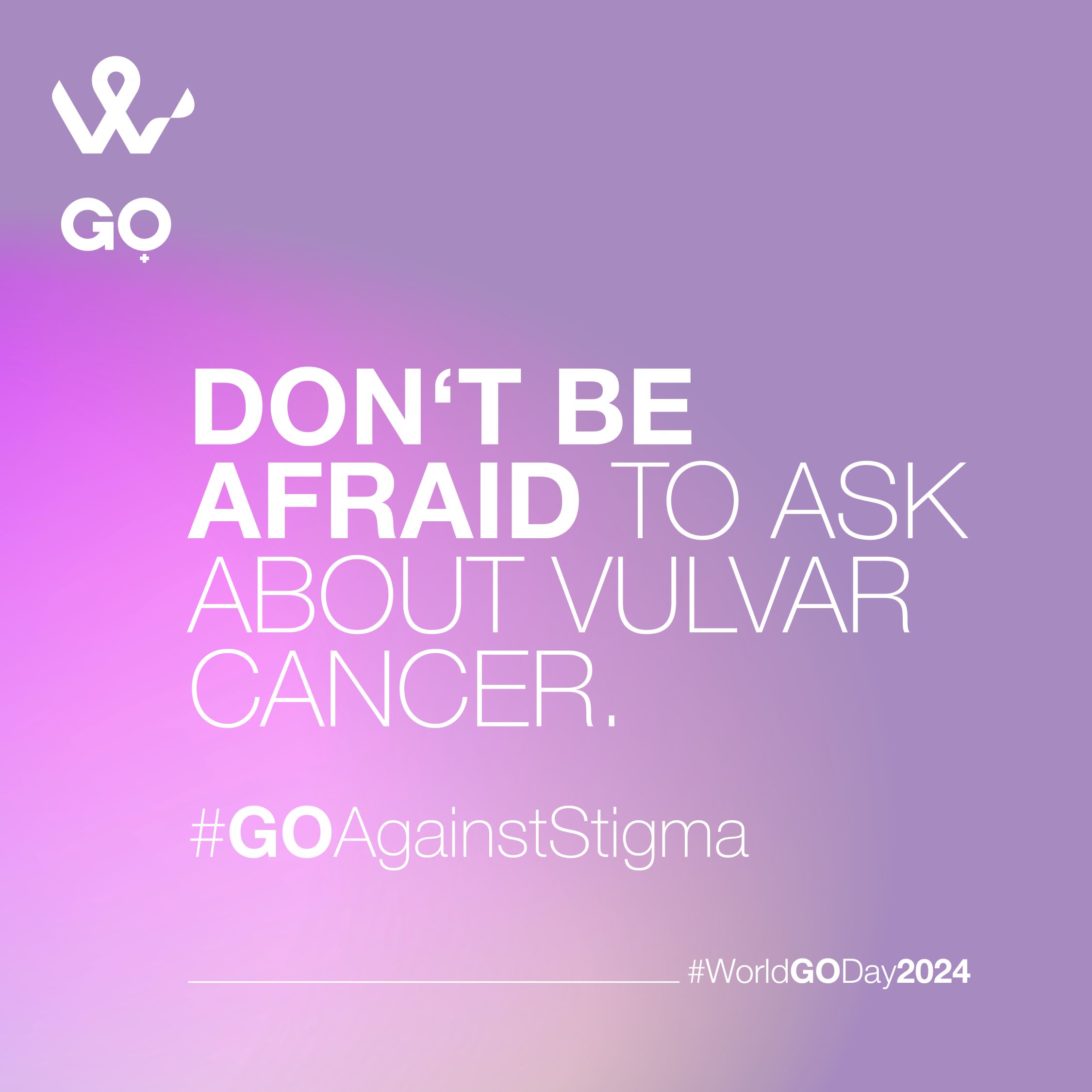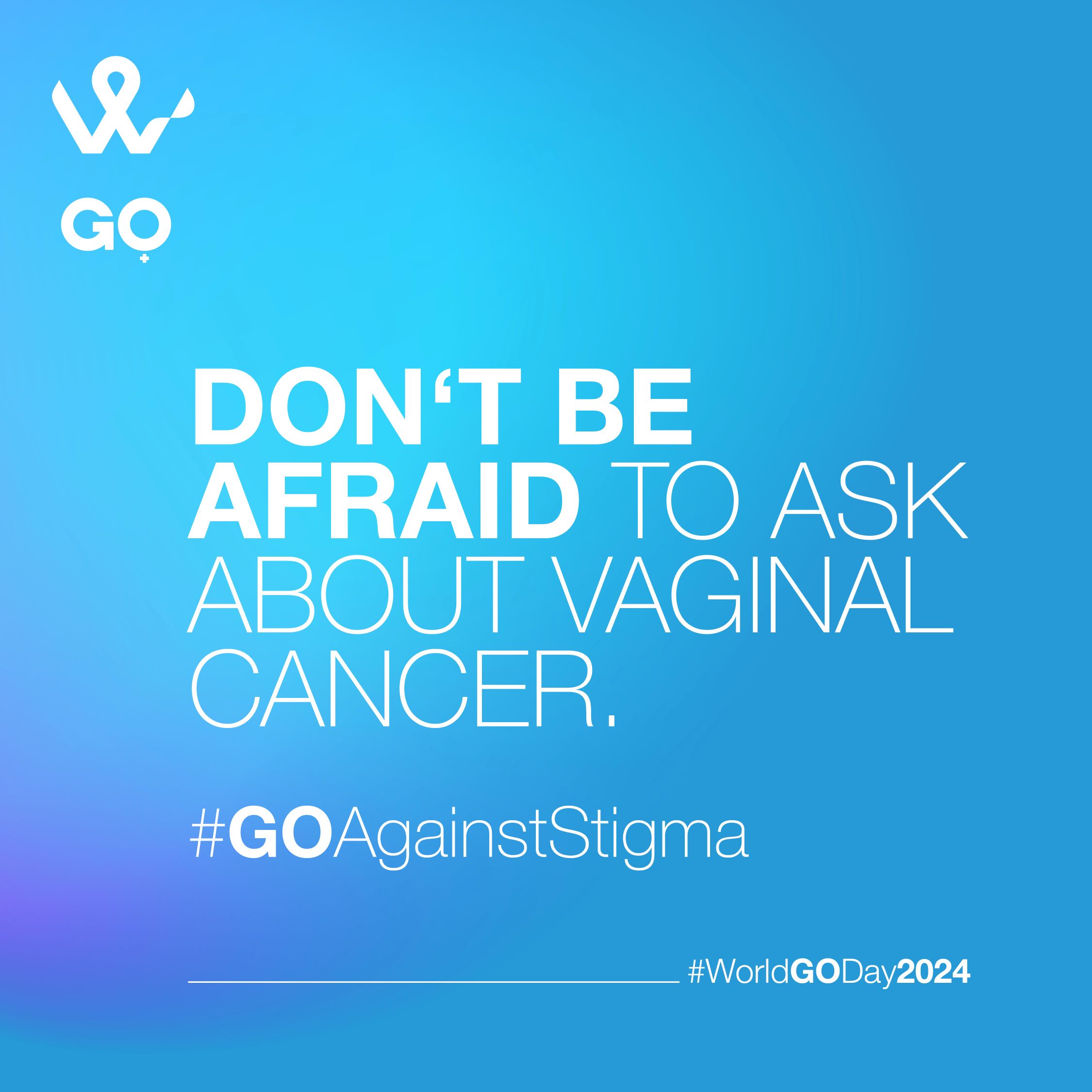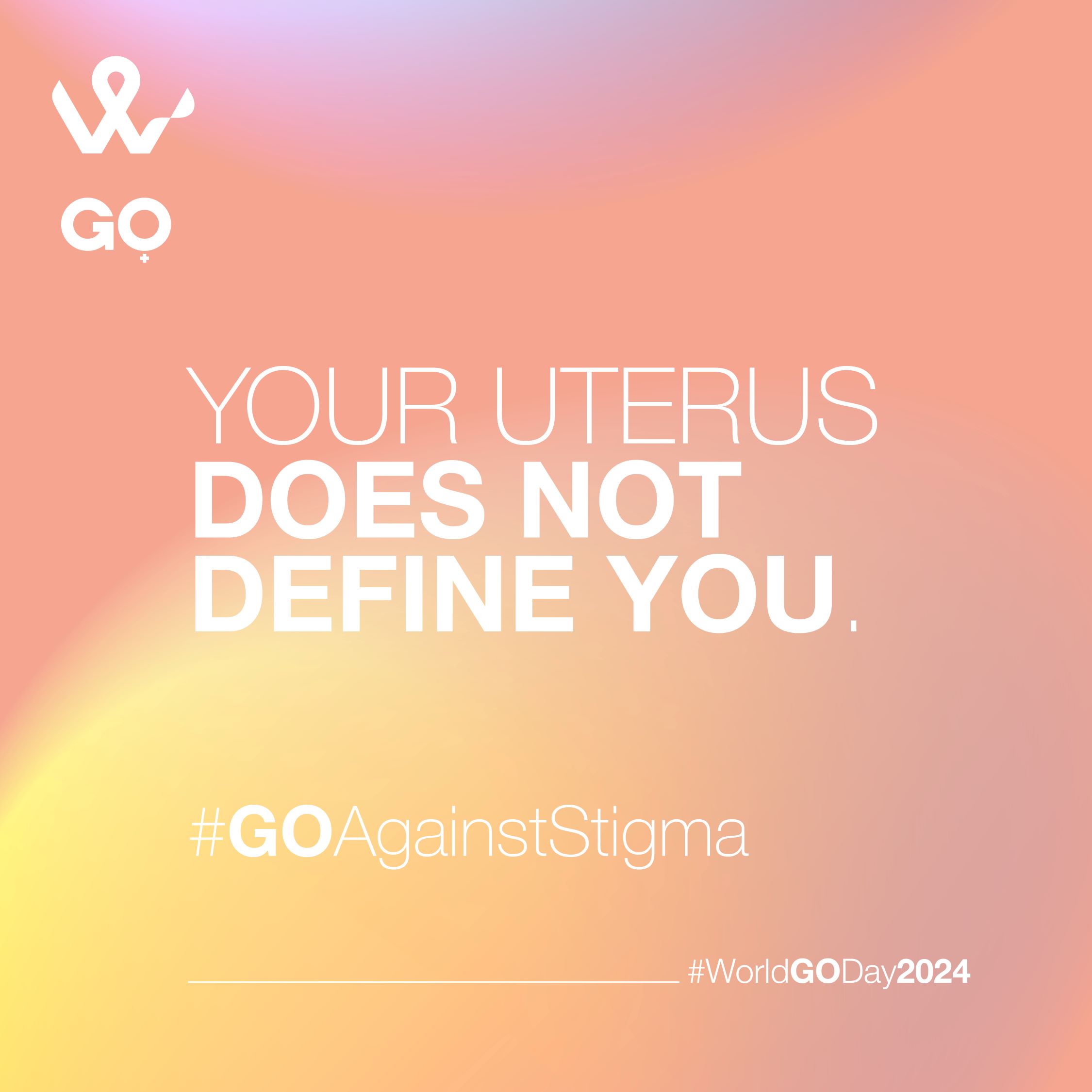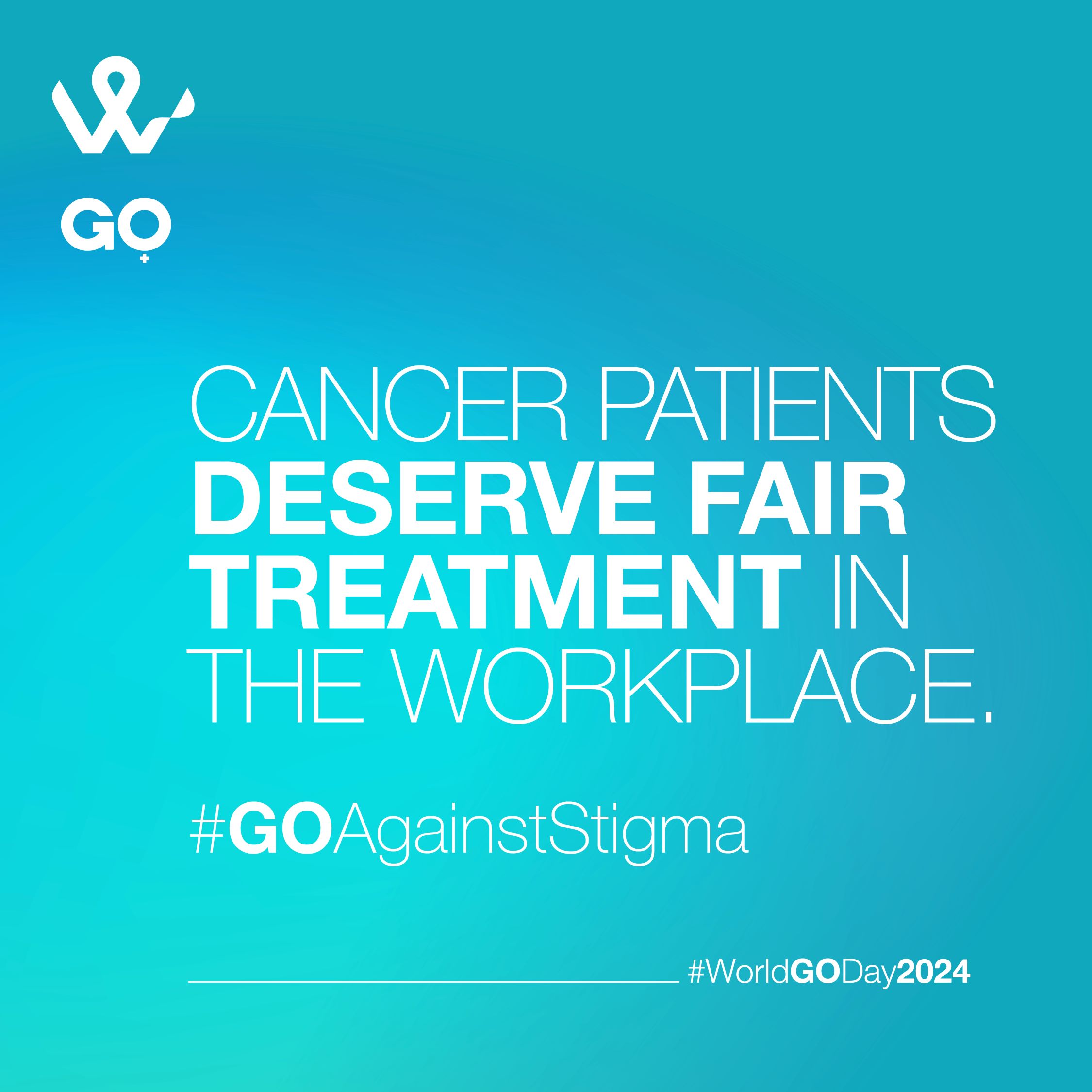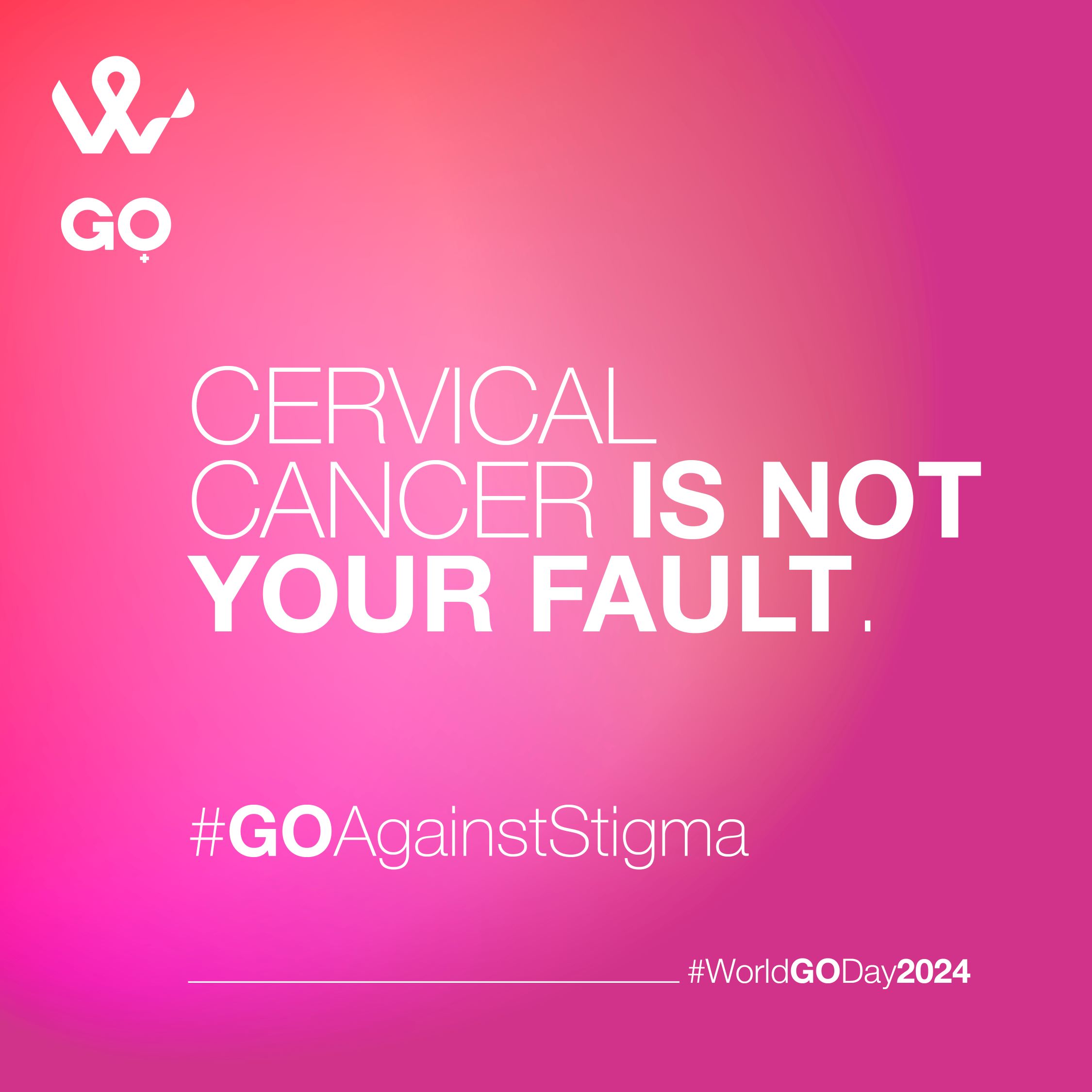The 2025 World Gynecologic Oncology Day theme is for the second year based around addressing stigma for gynecologic cancer patients. Stigma, defined as “a set of negative and often unfair beliefs that a society or group of people have about something” is something that all cancer patients may face, but due to societal and cultural factors including misogyny or ageism or taboos about discussing reproductive organs, may be even more frequently endured by patients who have been diagnosed with ovarian, uterine/endometrial, cervical, vaginal or vulvar cancer.
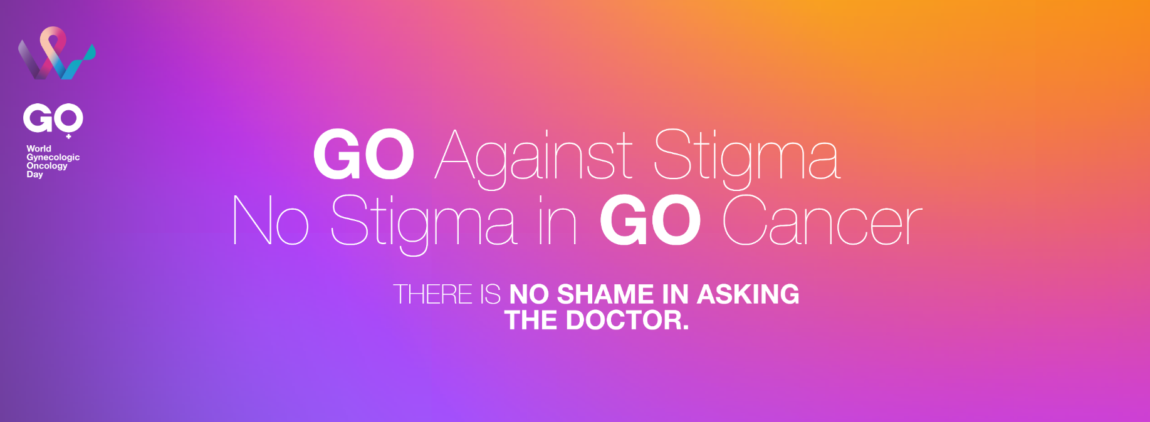
Stigma faced by these patients can be related to:
- False belief that gyn cancers are caused by promiscuity (having many sexual partners). This can lead to patients being reluctant to make appointments for checkups/followups and to talk about their disease. It can also cause self-blame or misunderstandings and discrimination in their personal and professional lives.
- False belief that women’s reproductive cycles are always painful/should be unpleasant. This can lead to patients being reluctant to make appointments/followups and to HCPs/partners/workplace managers being dismissive.
- Cultural or societal opinions about the definition of womanhood and its connection to fertility. This can lead to patients who have not retained fertility or have remained childless feeling self-blame, or depressed/discriminated against in their love lives, personal lives and professional realm.
- Related to above, cultural or societal opinions about the definition of womanhood and femininity and its connection to menopause.
- Cultural or societal opinions about femininity, beauty, and worth that can lead to depression and discrimination, particularly if the patient has scarring, weight gain, hair loss or hair gain or other physical changes.
- Cultural or societal expectations for women as caregivers that can lead to feelings of self-blame, depression or discrimination in the home/family/partnership when the cancer treatments render her unable to fulfill her usual roles in the home.
- Cultural or societal misperceptions about cancer patients’ fragility in the workplace. Patients or survivors may face discrimination at their employer due to misperceptions about the impact of their disease on their ability to perform or the reason for requesting days off/reduced hours. This can also lead to financial discrimination, e.g., in getting a mortgage or loan or in getting insurance.
- Cultural or societal support during treatments. Patients undergoing treatment may not receive support and may be discriminated against in the workplace, causing financial hardship and loss of stability and security. The need for accommodations in the workplace and ongoing rehabilitation is misunderstood or denigrated, leaving women feeling pressured to go without rehabilitation or accommodations.
- Ageism and/or misogyny making it difficult for older women to receive screening and care.
- Cultural or societal opinions about ageing making older patients more at risk of depression or persistent feelings of hopelessness.
- Lack of understanding and taboos surrounding the female reproductive system.
- False beliefs about vaccinations that lead to vaccine hesitancy (for HPV/cervical cancer)
- False beliefs about HPV and promiscuity that lead to vaccine hesitancy for girls
- False or misogynistic beliefs about “women’s problems” that might lead to vaccine hesitancy for boys
- Transgender or nonbinary individuals fearing discrimination and thus being reluctant to make appointments; or actually facing discrimination by healthcare systems and not receiving the education about cancer, screening or followup care they require.
- Various attitudes and beliefs that are specific to local regions and/or religions.
- Superstition.
- Avoidance of serious illness or death as topics. Friends and family sometimes gloss over the topic of cancer, or avoid cancer patients completely, perhaps because they are afraid of saying something wrong or because they are afraid themselves. This can cause isolation and discrimination.
- Stigma surrounding mental health topics, including survivor’s “guilt”, fatigue/depression/burnout (also for caregivers).
- Fatphobia or fear of negative perceptions of obesity delaying screening or adequate care.




